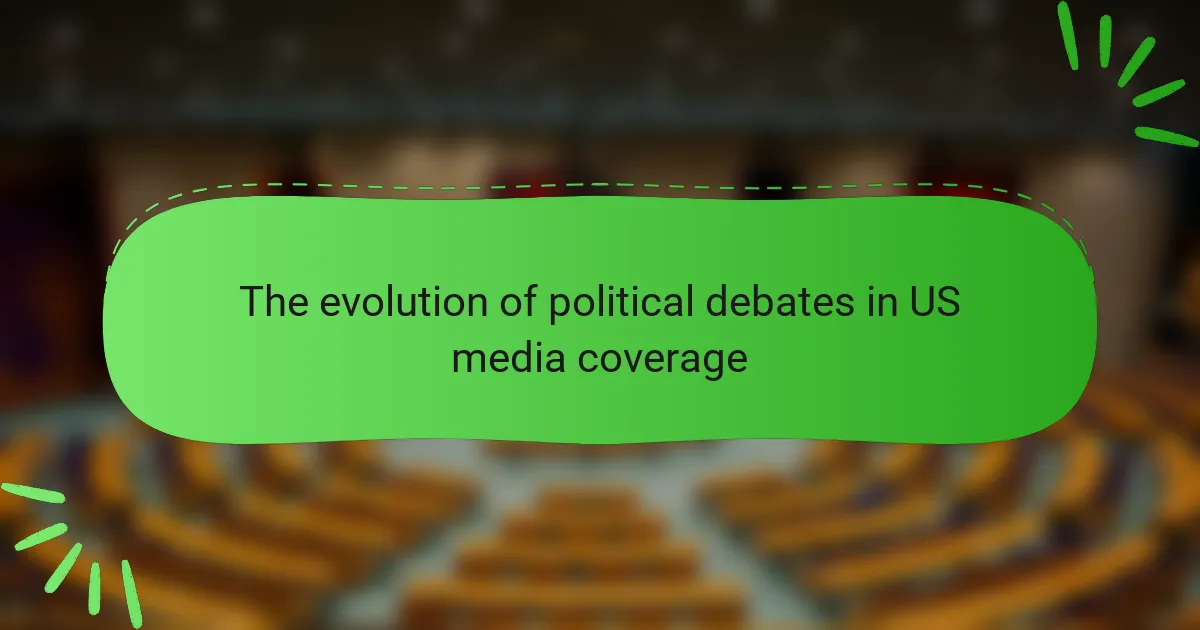The article focuses on the evolution of political debates in US media coverage, highlighting key historical milestones and technological advancements. It begins with the early days of debates, which were primarily broadcasted via radio and local newspapers, and emphasizes the significance of the first televised debate in 1960 between John F. Kennedy and Richard Nixon. […]
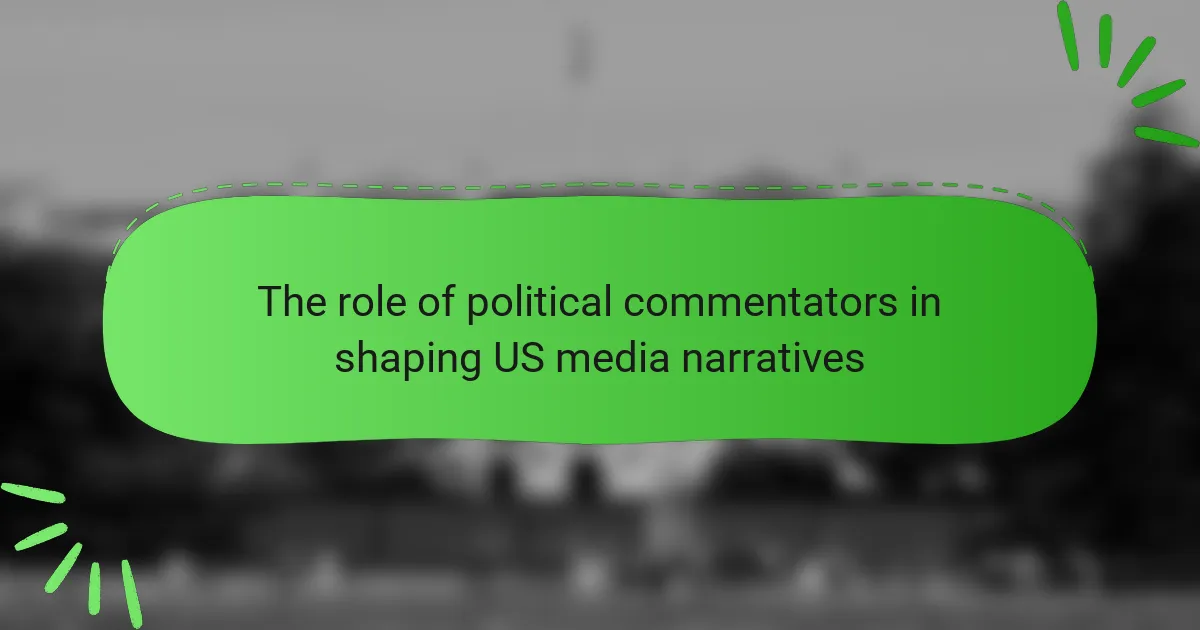
The role of political commentators in shaping US media narratives
Political commentators are influential figures in the United States who analyze and interpret political events and policies, shaping media narratives and public discourse. Their opinions significantly affect how news is perceived, as they provide context that can frame audience understanding. By selectively emphasizing certain viewpoints, commentators can sway public beliefs and attitudes, often leading to […]
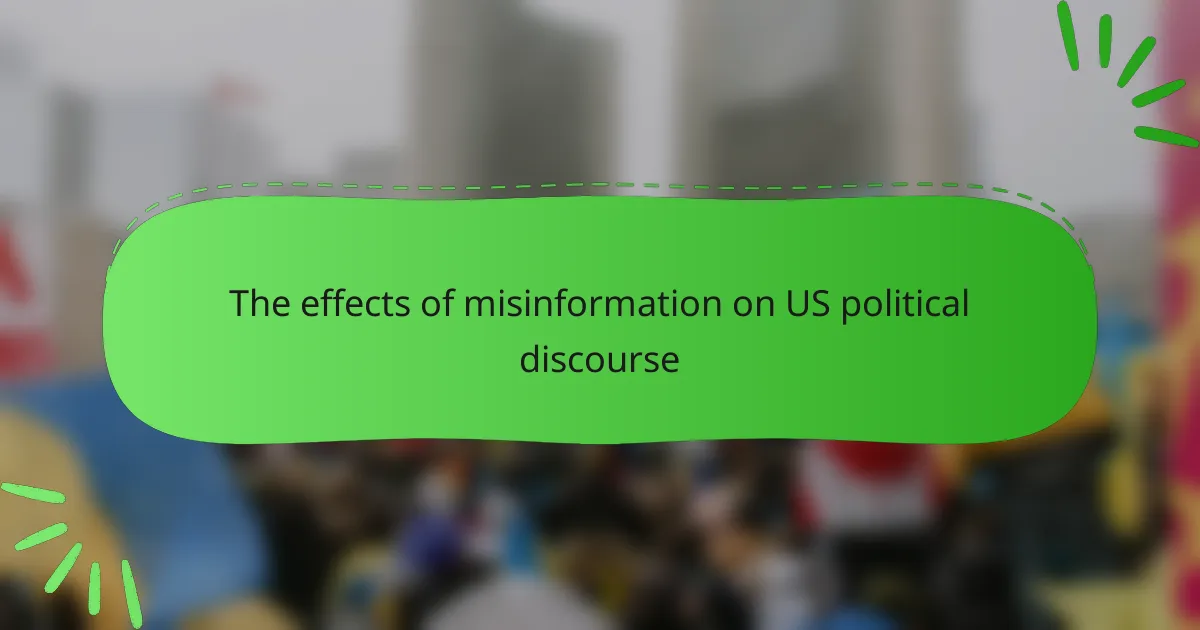
The effects of misinformation on US political discourse
Misinformation is a significant factor that distorts political discourse in the United States, leading to polarization among citizens and influencing voter behavior. Research indicates that false information spreads more rapidly than truth on social media, contributing to decreased trust in institutions and increased political extremism. Fact-checking initiatives and media literacy programs are essential strategies to […]
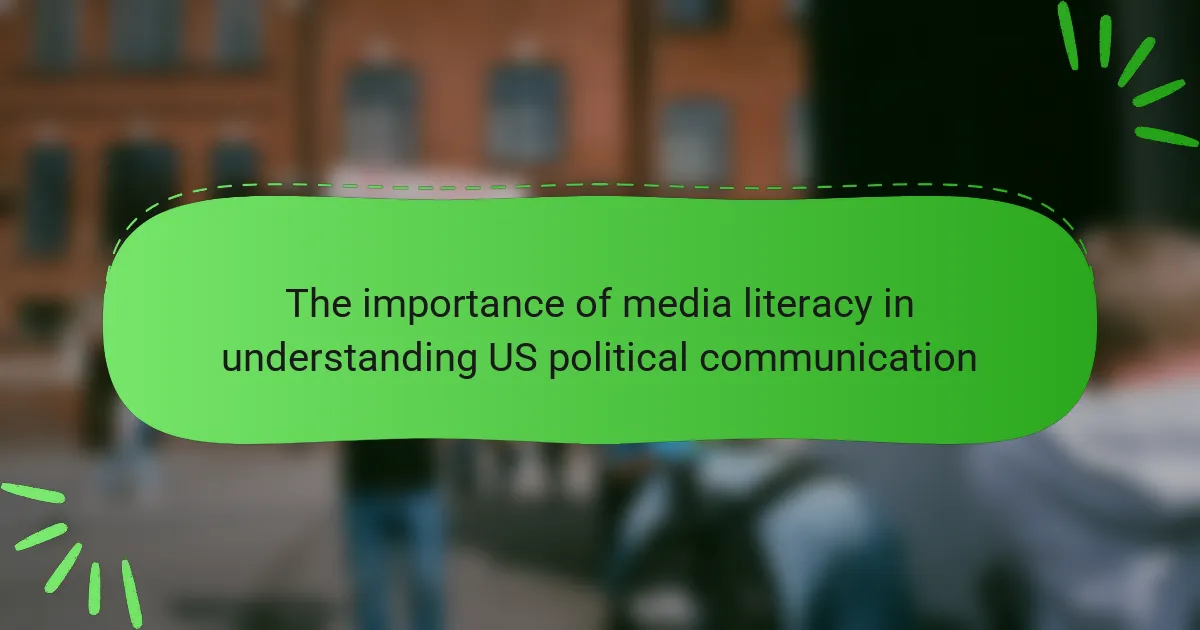
The importance of media literacy in understanding US political communication
Media literacy is the primary focus of this article, highlighting its significance in understanding political communication in the United States. It enables individuals to critically evaluate information sources, identify bias, and recognize misinformation in political messaging. The article discusses how media literacy fosters informed citizenship, enhances civic engagement, and equips voters to assess the credibility […]
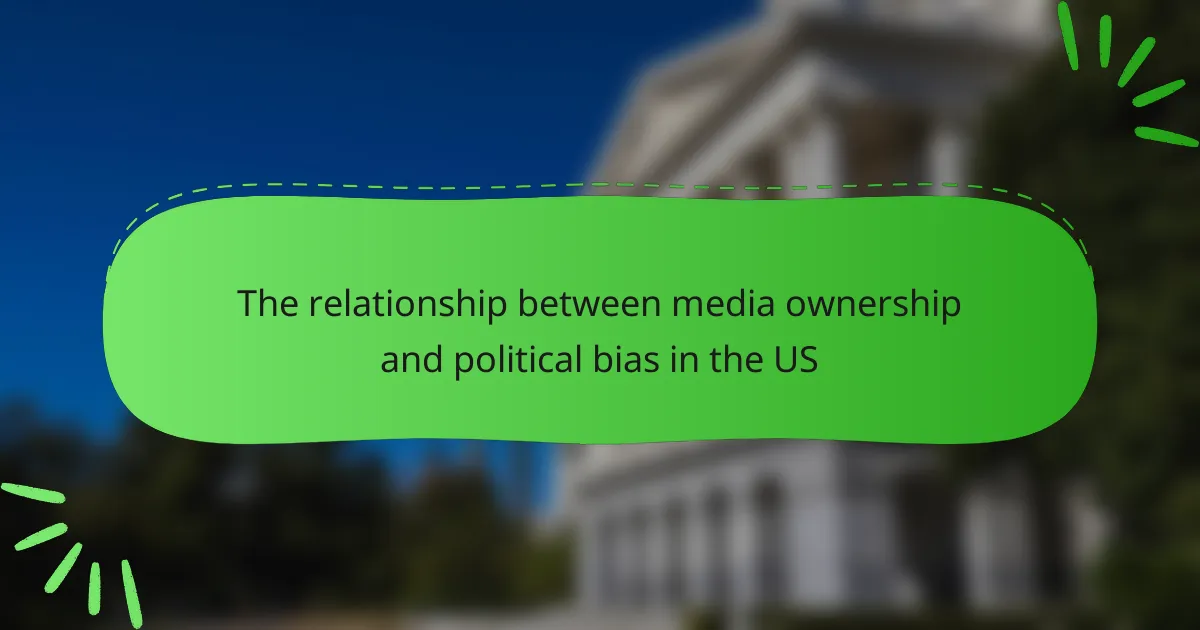
The relationship between media ownership and political bias in the US
Media ownership refers to the control and influence that specific individuals or corporations have over media outlets, which significantly impacts political bias in the United States. Concentrated media ownership often leads to a homogenization of viewpoints, where outlets promote particular political agendas aligned with their owners’ interests. Historical events, such as the Telecommunications Act of […]
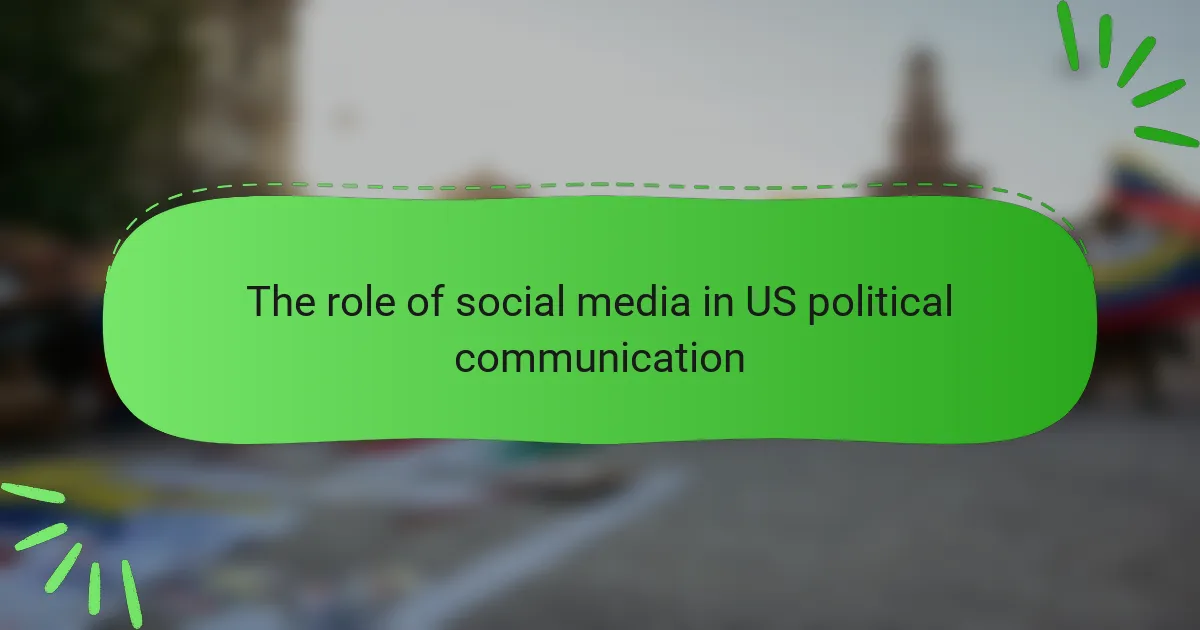
The role of social media in US political communication
Social media is a vital platform for political communication in the United States, enabling politicians to connect directly with constituents and disseminate messages rapidly. It facilitates real-time interaction and feedback, shaping public opinion and driving voter mobilization. However, ethical challenges arise, including the spread of misinformation, privacy concerns related to data usage, and the potential […]
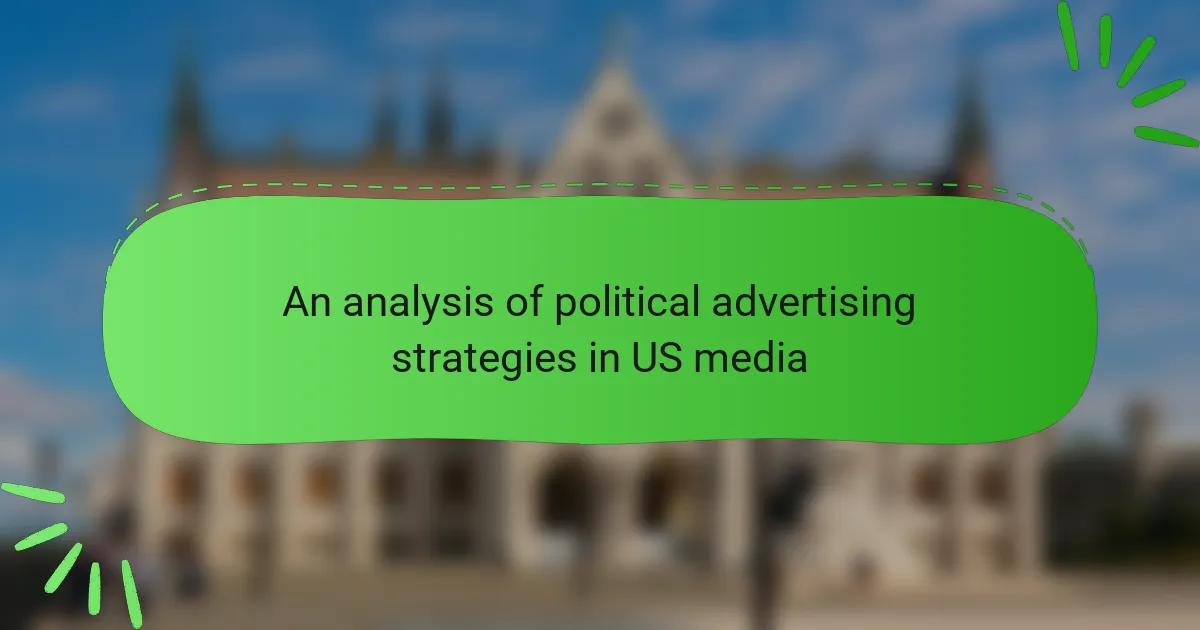
An analysis of political advertising strategies in US media
Political advertising strategies in US media encompass targeted messaging, emotional appeals, and digital advertising, which are essential for effectively reaching and persuading voters. Targeted messaging focuses on specific demographics to enhance relevance, while emotional appeals strive to connect with voters on a personal level. The transition to digital advertising utilizes social media and data-driven strategies […]
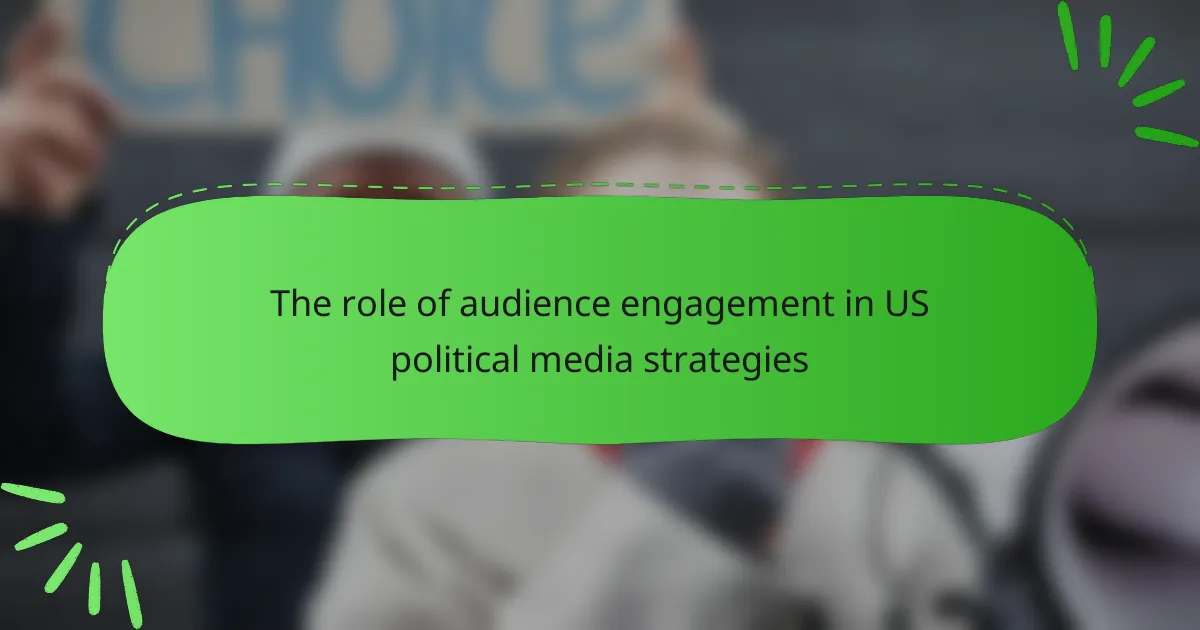
The role of audience engagement in US political media strategies
Audience engagement is a critical element in US political media strategies, facilitating connections between politicians and their constituents. This engagement is essential for mobilizing support, shaping public opinion, and influencing political messaging and campaign tactics. Strategies such as interactive content, social media integration, and targeted messaging enhance audience participation and feedback, which can lead to […]
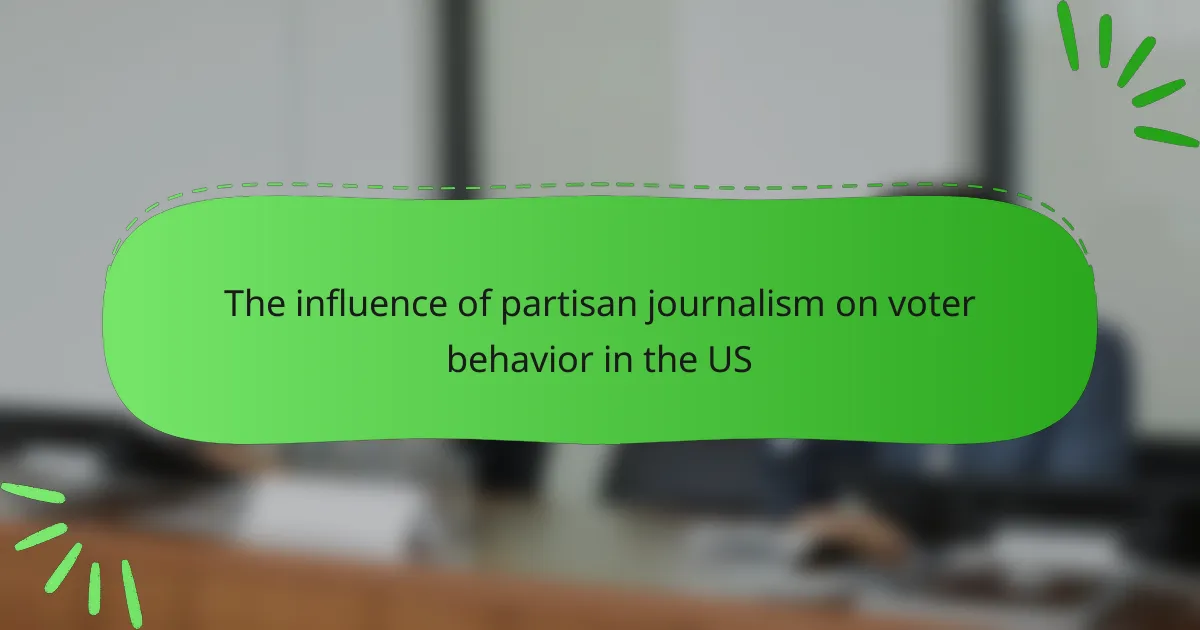
The influence of partisan journalism on voter behavior in the US
Partisan journalism is a significant factor influencing voter behavior in the United States. It shapes public perception by framing issues in alignment with specific political ideologies, leading to stronger partisan identities among individuals exposed to such media. Research indicates that 62% of Americans perceive news organizations as biased, which contributes to increased polarization and can […]
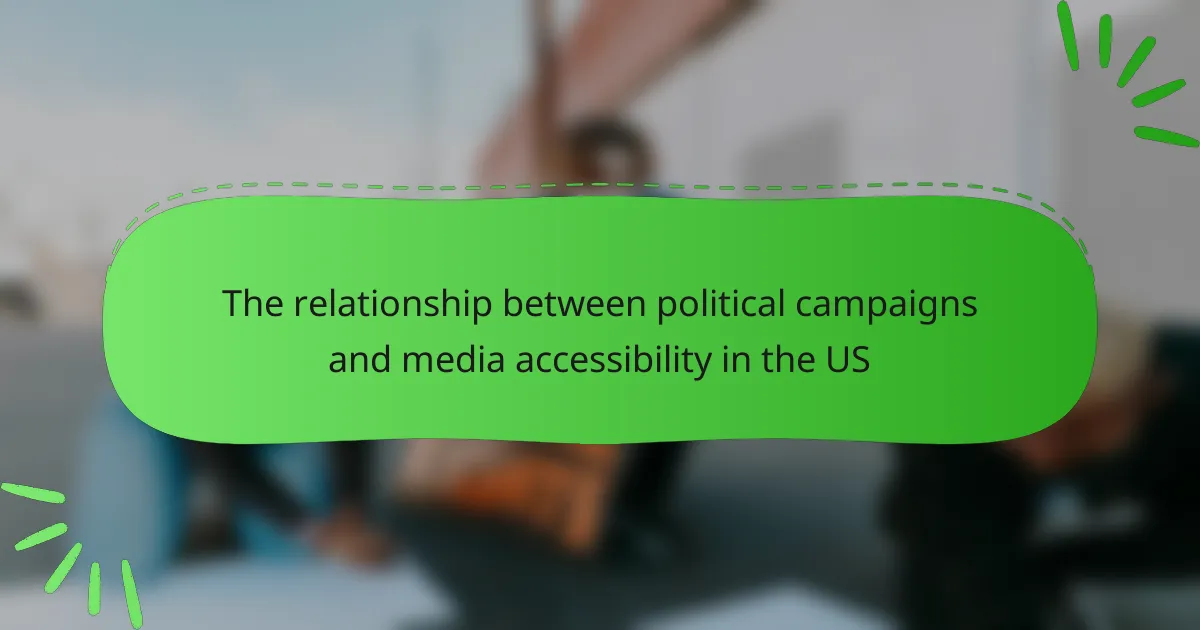
The relationship between political campaigns and media accessibility in the US
Political campaigns in the US are significantly shaped by media accessibility, which refers to the ease with which candidates can communicate their messages to the electorate through various platforms. Enhanced media accessibility allows campaigns to engage with a wider range of voter demographics, particularly through social media, which has proven effective in reaching younger voters. […]
